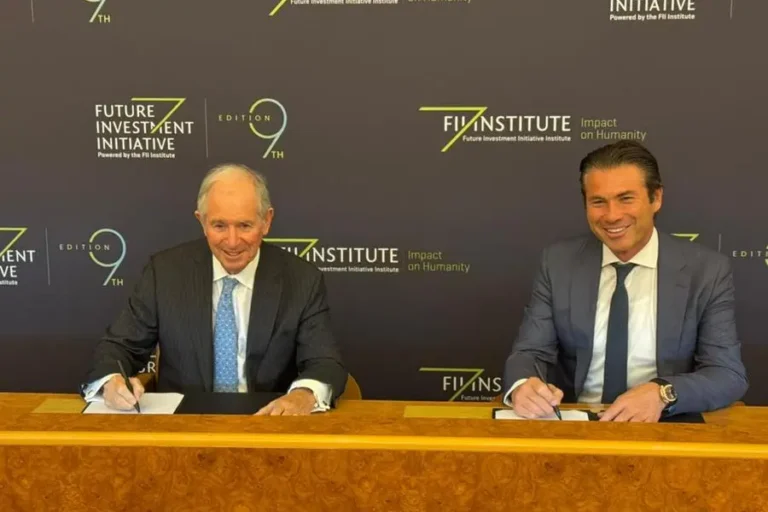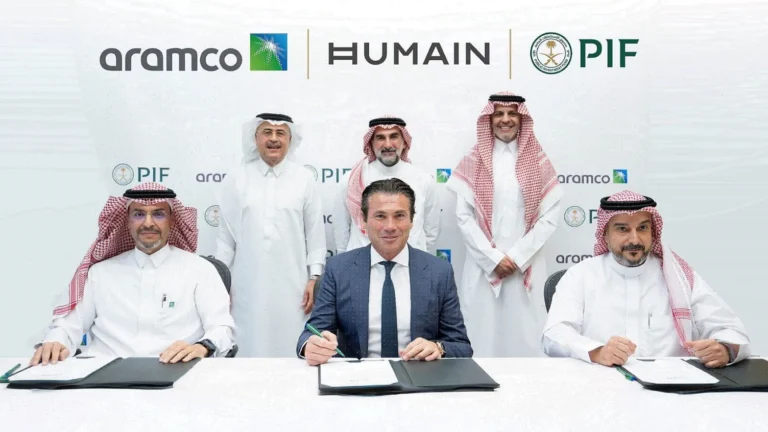Saudi Arabia reinforced its ambition to lead in artificial intelligence, data infrastructure, and digital transformation during the Future Investment Initiative (FII) 9 in Riyadh, where policymakers, investors, and global technology executives unveiled new partnerships and projects driving the next phase of the Kingdom’s innovation economy.
Opening the summit, H.E. Yasir Al-Rumayyan governor of the Public Investment Fund (PIF) and chairman of the FII Institute announced that more than US$250 billion in deals have been facilitated through the FII platform since its launch in 2017. He also referenced a global GDP gap of US$111 trillion and a 2.8 percent growth forecast, calling for governments and the private sector to collaborate more effectively through technology and innovation to drive equitable development.
The 2025 edition of the forum, held from October 27–30 in Riyadh, drew over 8,000 participants and hosted more than 250 sessions. More than half of all speakers 52 percent represented the technology sector, underscoring how rapidly FII has evolved into one of the world’s largest gatherings focused on digital transformation, AI, and data economy development.
Among the headline announcements was a US$3 billion strategic partnership between HUMAIN, the Saudi AI company backed by the PIF, and AirTrunk, the Asia-Pacific hyperscale data center operator owned by Blackstone and CPP Investments. The companies will jointly build large-scale data centers in Saudi Arabia to power national AI and cloud computing initiatives.
In a related move, HUMAIN also signed a collaboration with Qualcomm Technologies, Inc. to deploy advanced AI infrastructure, bringing high-performance computing closer to the edge and enabling new applications in cloud services, smart cities, and national-scale AI systems.
Saudi Arabia’s Minister of Investment, Khalid Al-Falih, emphasized that the Kingdom’s next stage of economic expansion would depend on deepening private-sector participation and venture capital investment, particularly in technology and advanced manufacturing. He noted that the Kingdom is transitioning from sovereign-led spending to an innovation-based economy anchored by Vision 2030.
According to a report released by the FII Institute, the Global South is home to more than 23,000 start-ups but has received only US$12.1 billion in AI-related investment compared with US$108.3 billion in the Global North. The report estimates that inclusive AI investment could unlock up to US$10.3 trillion in additional global GDP by 2038, highlighting the scale of opportunity in emerging markets.
Under the Vision 2030 framework, Saudi Arabia recorded a 3.4 percent rise in foreign direct investment in recent years, reaching US$31.7 billion, with a growing share allocated to digital infrastructure, AI research, and smart city projects such as NEOM and The Line. The Kingdom is also preparing to host Expo 2030 and the 2034 FIFA World Cup, both expected to accelerate investments in connectivity, cloud infrastructure, and AI-driven services.
Panels throughout the summit featured leaders from Microsoft, OpenAI, Alphabet, STC Group, and Aramco Digital, discussing the governance of AI, the future of data centers, cybersecurity, and the intersection of technology and energy innovation.
The FII 9 summit reinforced Saudi Arabia’s objective to establish itself as a global hub for AI and data innovation, supported by strategic capital, world-class infrastructure, and cross-border technology partnerships.




Saudi Arabia positions itself as global hub for AI and data innovation